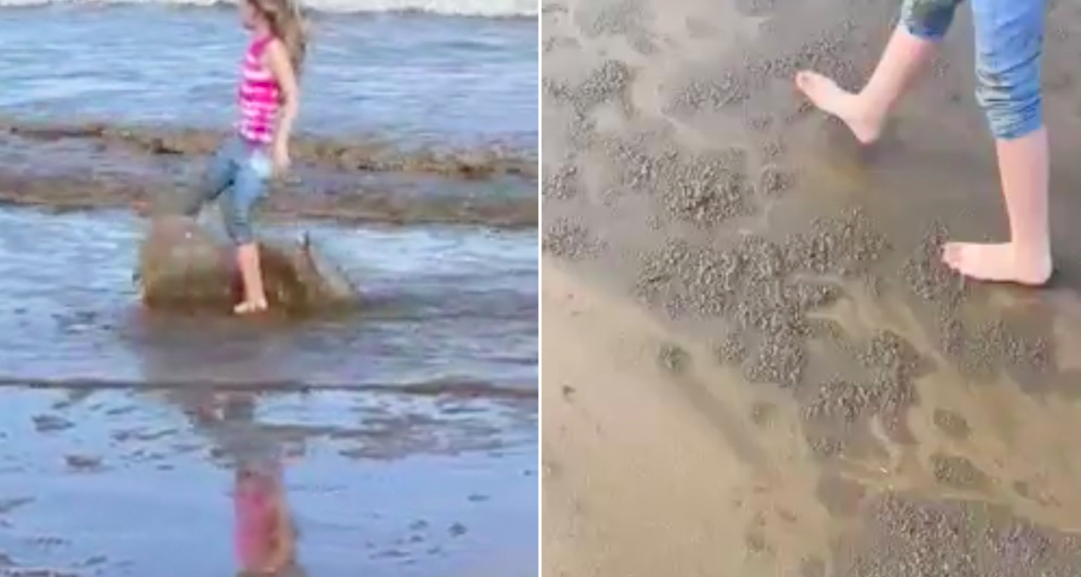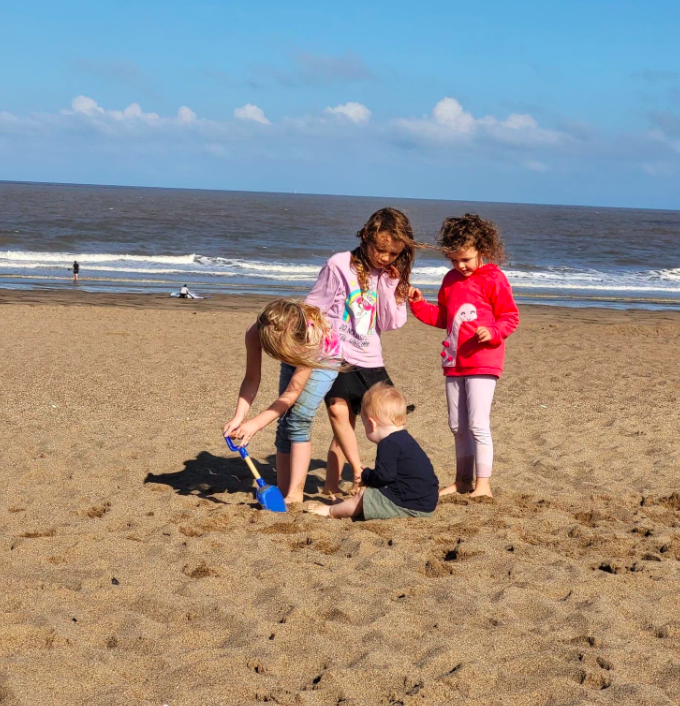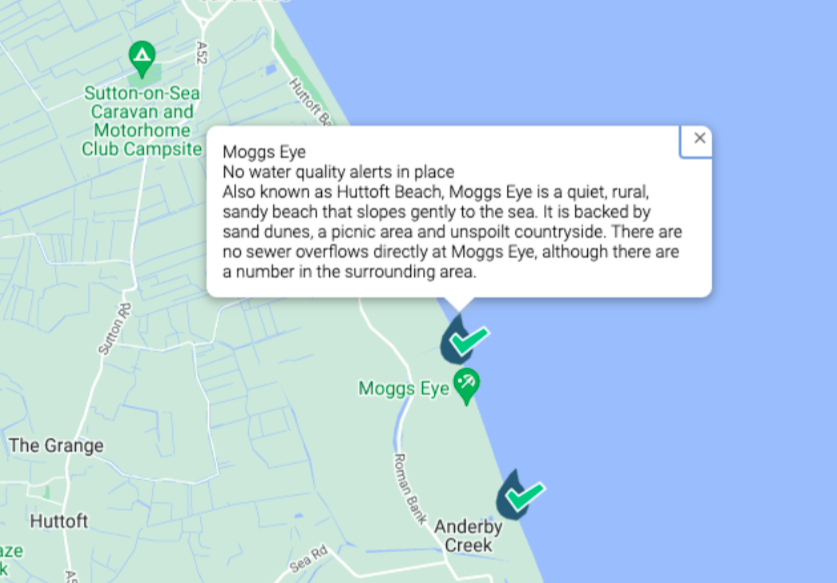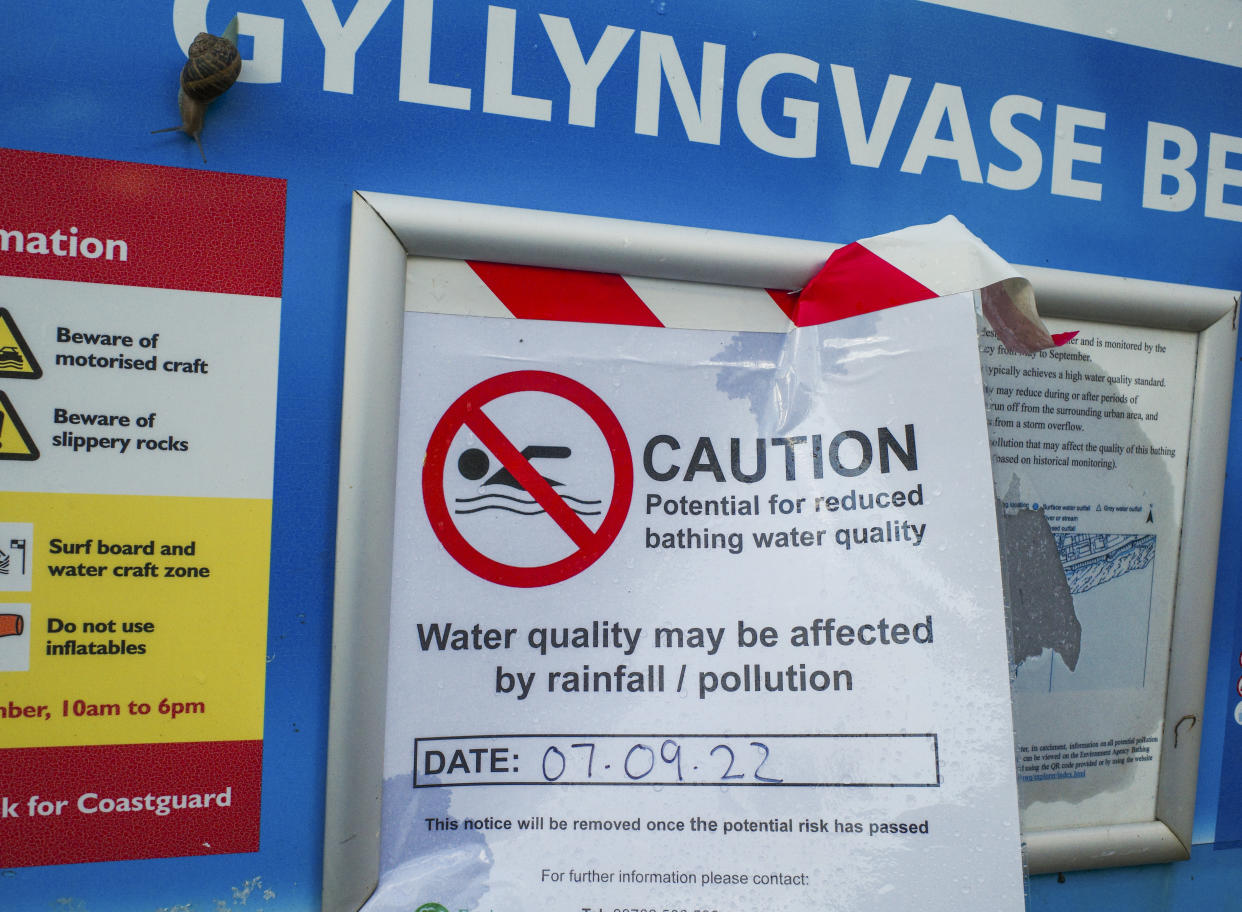Viral video of family paddling in ‘sewage’ on beach is sea algae, water company confirms
Watch: Viral video of family 'stepping in sewage on beach' debunked
A video of children paddling in what their mother suggested was human waste on a Lincolnshire beach was in fact natural sea matter, authorities have confirmed.
Emma Oldham posted a clip on Twitter on Sunday that appeared to show “poo” all along Huttoft Beach, that her three children were walking over.
The 33-year-old conservation biologist was heard saying the brown-coloured sea water “stinks”, and later claimed her children were left ill as a result of wading through it.
But Anglian Water said it had carried out an inspection of the beach after the video went viral, and said it had found no evidence of sewage in the water – and what is seen is actually “sea algae”.
A spokesperson said: "The picture in the post is of sea algae, which is a natural phenomenon, completely unrelated to sewage.

"For clarity, we have no storm overflows along the sea front in this area.
"There is nothing at Moggs Eye, and waste water from the Anderby Creek Water Recycling Centre is taken to Ingoldmells, much further along the coast, to be treated.”
The Environment Agency said they had not received any reports of “pollution incidents” at Huttoft beach over the weekend.
A spokesperson added: ”The Environment Agency receives many reports of suspected sewage pollution every year, at coastal waters in particular, that are in fact the breakdown of algal blooms.
“It is easy to mistake algae for sewage, particularly as both have an unpleasant smell.

“If people notice brown foam on the water’s surface or on the beach it is more likely to be the result of an algal bloom breaking down.”
The Surfers Against Sewage (SAS) app, which allows anyone to check the water quality at coastal areas, also shows that there are no concerns over water quality at Hutoft Beach.
Mrs Oldham and her husband had taken their three children to the beach as part of a camping holiday.
She previously said the water was “filled with these grainy bits and they were sticking to my skin”.

After spending three minutes in the water, the family rushed out and headed straight to the showers at the campsite.
Mrs Oldham said she had suffered chronic stomach pains after being in the water while her twins have also had be off school as they've been feeling ill.
Kirsty Nizinkiewicz, who also took her children to the beach over the weekend, said that she had “never seen sea water looking so brown and smelly”.
While the water was not found to be contaminated in this instance, water firms have recently been criticised for not investing in outdated sewage infrastructure.

Dozens of pollution warnings were issued for beaches and swimming spots in England and Wales following heavy rain earlier this month that overwhelmed the system.
New data from the Environment Agency also showed that water companies spent more than nine million hours pumping raw sewage into Britain’s seas and rivers since 2016.
Firms face new targets to improve the sewerage system, including all overflows releasing into, or near, all designated bathing waters, and 75% of those discharging to high priority sites, by 2035.
By 2050, no storm overflows will be permitted to operate outside of unusually heavy rainfall or to cause any adverse ecological harm.


